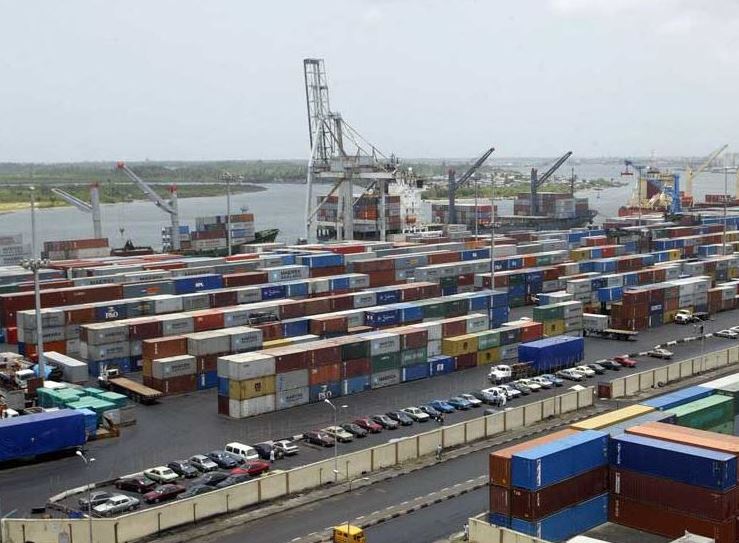Port operations in the country have been hit by hike in import duties of vehicles and rice as well as the introduction of a fish quota system by the administration of former President Goodluck Jonathan.
Seaport operators stated this in a statement on Sunday in Lagos and decried the effects of prolonged low activities at the ports.
According to the operators, the ports have also suffered from the restriction of 41 items from accessing the official foreign exchange window by the Central Bank of Nigeria (CBN).
The National President, National Council of Managing Directors of Licensed Customs Agents (NCMDLCA), Mr. Lucky Amiwero decried the current hike in import duty on vehicles in 2014/2015 from 10 per cent to 35 per cent with an additional surcharge of 35 per cent.
He said the policy had brought the total tariff to 70 per cent, adding that this had negatively impacted on operations at the ports.
Amiwero said this had also led to massive revenue and job loss.
He said the arbitrary import duty hike led to the diversion of vessels carrying vehicles to the ports of neighbouring West African country, thereby boosting operations in those ports, especially the Port of Cotonou, at the expense of Nigerian ports.
“The development has also negatively affected the operations of dockworkers, licensed Customs agents, freight forwarders, truckers and others,’’ the News Agency of Nigeria (NAN) quotes Amiwero as saying.
According to him, the reduction of activities by 70 per cent in the operation of terminal operators who pay the Federal Government based on cargo, through earnings and shipping companies, has drastically affected their activities.
The Customs agent said that presently, Nigerian ports had lost about 80 per cent of their vehicle cargoes; as a result of this hike, which has done more harm than good to the economy.
“It (hike) has promoted smuggling and led to huge loss of government and private sector revenue to the advantage of the ports of neighbouring countries.
“It is estimated that no fewer than 5,000 jobs and about N30 billion is lost annually to the policy,’’ NAN quotes Amiwero as saying.
Signals that Nigeria was on a journey to recession came early this year when the National Bureau of Statistics (NBS) announced that the country recorded a decline of N793.5 billion in the 2016 first quarter merchandise trade to close at N2.72trillion from N3.51trillion in the fourth quarter of 2015, the first time in the last seven years.
The bureau attributed the decline in the first quarter activity to a sharp drop in both import and export trades.
Data at the Nigerian Ports Authority (NPA) showed that 341 vessels entered Nigeria in September 2016, the lowest in nine months and a fall from 400 recorded in August 2016.
Cargo throughput also dropped from 6.3 million tonnes in January this year to 5.6 million in September, which is also the lowest in the year.
The statistics also showed that a total of 3,347 ocean-going vessels have called Nigeria so far this year, estimated at about 100.15 million tonnes.
The breakdown showed that the Lagos Port Complex Apapa received 318 vessels in the third quarter as against 301 in the second quarter.
Tin Can Island Port received 406 vessels in third quarter, against 368 in the last quarter; Rivers Ports, 80 ships against 84 in the previous quarter; Onne received 152 vessels against 163; Calabar Port, 51 against 52; while Delta Port received 132 against 109.
Experts have blamed the drop in cargo volume and huge loss of revenue by port and terminal operators on the anti-trade policies, which were making the country unattractive to investors.
Break bulk terminals at the ports are struggling to pay their bills and meet their financial obligations to NPA due to the plethora of banned products and the hike in import duties.
The hike in import duty on rice; the restriction imposed on the importation of fish and cement, are all taking a huge toll on the income of the break bulk terminals as t




 Premier League
Premier League